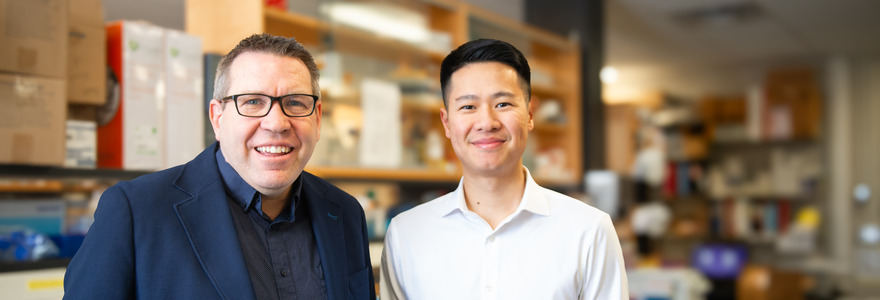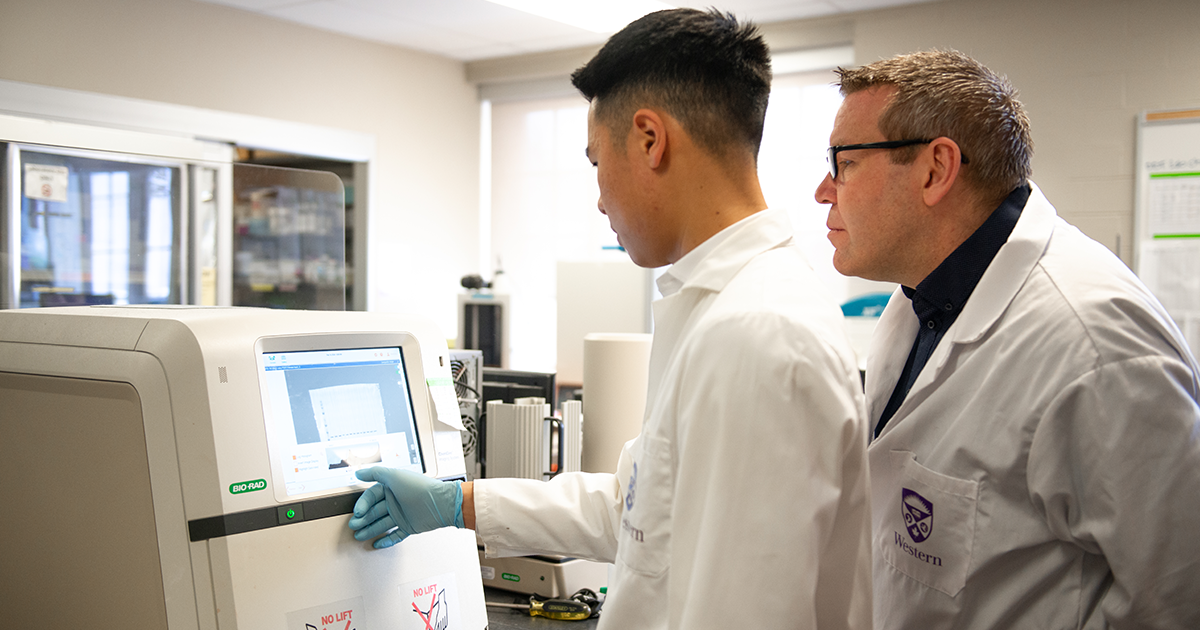Exposure to cannabidiol (CBD) in pregnancy reduces heart function in young male offspring

By Cynthia Fazio
It has been reported that approximately seven per cent of pregnant women in North America consume cannabis because it is perceived as a safe option to help manage nausea and anxiety.
The two major components of cannabis are tetrahydrocannabinol (THC), the main psycho-active component in cannabis, and cannabidiol (CBD), the major non-psycho-active component. THC has been found to be dangerous to the fetus and offspring, and up until now there has been little literature focusing on the effects of CBD. For the past several years, the Hardy Lab, led by Dan Hardy, PhD , at Schulich Medicine & Dentistry, has been conducting research on the impact of both THC and CBD on fetal health.
A new study published today in Cannabis and Cannabinoid Research sheds additional light on some of the effects of CBD use during pregnancy. The study, led by PhD Candidate Kendrick Lee, found exposure to CBD in pregnancy led to male offspring exhibiting early deficits in cardiac function.
“There have been very few studies on the impacts of CBD use on offspring,” Lee said. “We suspected that it was not safe, but there hadn’t been much scientific evidence up to this point.”
In a previous study , published last November, Hardy, associate professor in the Departments of Obstetrics & Gynaecology and Physiology & Pharmacology, and PhD Candidate Sebastian Vanin found moderate exposure to CBD during pregnancy could lead to glucose intolerance in male offspring .
“The effect of CBD on fetal development and offspring had never been studied like this before, so we mimicked the dose range found in human umbilical cord tissues. This study, which uncovered links to post-birth glucose intolerance, was the first to show that CBD, not just THC, is not safe for offspring exposed during pregnancy,” Hardy said.
Collectively, these two studies increase the understanding of the risks of CBD use while pregnant. The findings revealed that regardless of the amount of CBD consumed during pregnancy, the male offspring at three weeks of age – which is when they are weaned off breast milk – had reduced cardiac function and exhibited reduced protein levels of cannabinoid receptor 2. This suggests that the development of the endocannabinoid system in the heart, which influences cardiovascular pathologies, may be compromised long term by prenatal CBD exposure.
The study further notes that compromised heart function could lead to adverse outcomes when combined with anxiety, poor diet, or other variables that can impact heart function. Individuals exposed to CBD in utero may have a higher susceptibility to a myriad of heart issues.

While more research needs to be conducted, these studies continue to show the negative effects of CBD consumption on offspring health and suggests that consumption of CBD alone or as a component of cannabis during pregnancy is likely harmful for the offspring. In addition to early adverse cardiac function, the full damage may be revealed over time.
“These negative effects could progress as individuals age, where these cardiac deficits combined with an unhealthy lifestyle could further compromise heart function, and even heart failure,” Lee said.
The work is a first step in understanding the harmful effects of CBD use in pregnancy. Currently, these studies have only been undertaken in animal models. The next step is to monitor CBD use in clinical studies to see if the results are consistent in these populations.
“More research is needed. These results provide the impetus for clinicians and worldwide regulatory agencies to truly assess the safety of CBD use in human pregnancies,” said Hardy who is also a scientist in the division of maternal, fetal and newborn health at Children’s Health Research Institute.
The team also included Western researchers Mina Nashed, Sebastian Vanin, Mohammed Sarikahya and Steven Laviolette and Queen’s University researcher David Natale.








